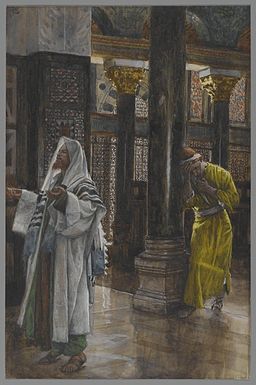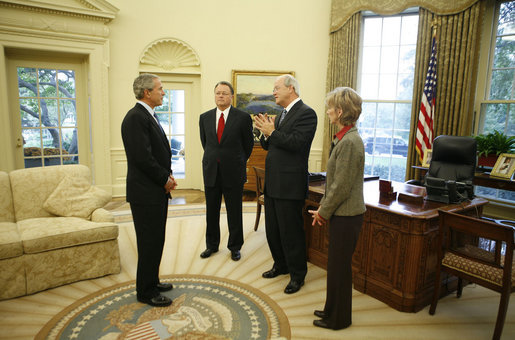None So Blind
— Jeremiah 5:21, from the King James Version of the Bible.
With the release of the redacted Mueller Report last week by the presidential administration’s stooge at the Department of Justice, Attorney General William Barr, Democrats should finally let go of one of the beliefs they have clung to since Hillary Clinton’s defeat in 2016, namely that the other campaign colluded with the Russians in meddling with the election. Special Counsel Robert Mueller and his team found it was not through lack of trying on the part of Republican campaign officials that collusion did not occur, but due to their bumbling incompetence.

The Pharisee and the Publican, a painting from between 1886 and 1894 by James Tissot (1836-1902), based on a parable in the Gospel of Luke.
It is important to proceed with impeachment of the president because it is the right thing to do, because the evidence against him mounts every day and the House is therefore obligated by law to proceed, and because no matter what Old Guard Democrats like California Representative Nancy Pelosi and New York Senator Chuck Schumer advise about waiting the president out until November 2020, they are wrong since they underestimate the value of the impeachment proceedings aside from the futility of achieving conviction. The Oval Office Blowhard wants to always make everything about him? Very well, let him have it, with day after day airing of dirty laundry.
One third of the American people are never going to be dissuaded from following this president no matter what comes out in an impeachment. Those people are lost to reason, as the president acknowledged in his notoriously accurate assessment of them when as a candidate he boasted he could shoot somebody in broad daylight and they would let him get away with it. The people who need to have the case against the president laid before them in a way they can’t ignore are the third of the people between the hard core MAGA brigade and the other third of the population, mainstream Democrats.
“Israelites”, a 1968 song by Desmond Dekker & The Aces.
Then see clearly enough to put before the voters a Democratic candidate who generates more widespread enthusiasm than a neoliberal hack such as Hillary Clinton. Give them someone who genuinely speaks for all of them, not just Wall Street while hypocritically mouthing old platitudes about helping the middle and working classes. People don’t want to be sold down the river again, as they were in the Bankers’ Bailouts of 2008 and 2009, and the only ones who could blame them are mainstream, corporatist Democrats who haven’t learned a thing from that time or from the Debacle of 2016.
— Ed. 




